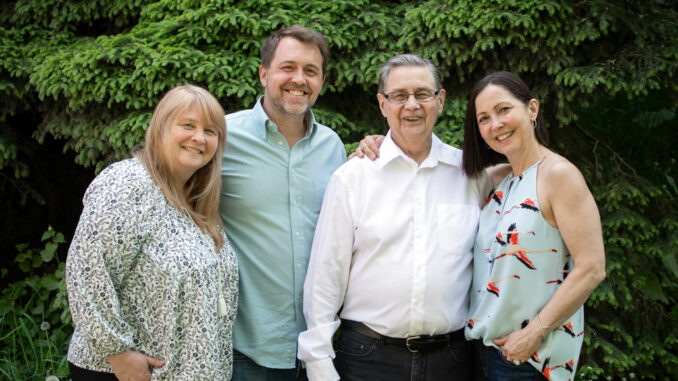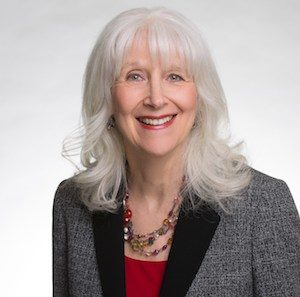
Everyone (I talked to) passionately agrees, the team is the hero of this story.
What team, you might ask? Sunnybrook Hospital’s Focused Ultrasound Essential Tremor (FUS) team, including physicists, engineers, neurosurgeons, neurologists, neuroradiologists, psychiatrists, research managers, coordinators, and psychologists. “An A team advancing tremor treatments” according to clinical director Dr. Nir Lipsman.
“With our multi-pronged approach at the Harquail Centre for Neuromodulation, we advance treatment for patients and make tools like FUS more widely available. We work closely with our community partners like primary care physicians and neurologists to help patients with tremor who have reached the limits of conventional treatments, and who are referred to our multidisciplinary clinic. We’ve treated close to 400 patients. Typically, once referred and screened, eligible patients are into the clinic within three months and treated a few months later.”
According to Sunnybrook’s website, “Focused ultrasound (FUS) is a non-invasive, image-guided surgical technology that uses multiple sources of ultrasound energy, arranged in a specially designed helmet, to target areas deep within the brain. The ability to focus ultrasound energy non-invasively, through the human skull, was largely pioneered by scientists at Sunnybrook Health Sciences Centre. This work created a springboard for the development of new therapeutic applications, by enabling surgeons and scientists safe and precise access to deeper brain structures, without opening the skull. Sunnybrook has become a global leader in FUS research and clinical trials and is the only Canadian site designated as a Focused Ultrasound Centre of Excellence by the Focused Ultrasound Foundation recognizing the scientific leadership of Dr. Kullervo Hynynen, VP, Research & Innovation, and the contributions of Dr. Nir Lipsman, the Clinical Director, and the team.”
Recent patient Gary Fairfoul is certainly a believer. “…Dr. Lipsman and his team are all heroes bringing life changing results to patients like me. They’re skilled scientists and gifted artists. I am so appreciative of their talents and contributions.”
Essential tremor can be life-changing for patients in their daily lives. According to Dr. Lipsman, patients tend to develop tremors at age 50 and beyond. While often slight at outset, the condition can increase and make simple tasks like drinking a glass of water or cutting with a knife or scissors very difficult.
Gary commented, “My experience is somewhat unique. Unlike many others whose essential tremor comes on rapidly and dramatically later in life, I was born with a mild tremor, as was my mom. We both learned to live with it. I’m retired now yet I enjoyed a long career as an educator including principal of the Toronto Island School.”
But at age 60, his tremors increased, especially with writing, to the point where his signature became illegible. “Then, one day my daughter Fawn called me. She said, ‘Dad, I just read a story about a man who had essential tremor. He qualified for and was successfully treated in Sunnybrook’s essential tremor clinical trial. Let’s contact them.’ I contacted Sunnybrook right away, was accepted into the trial and had my successful treatment in May. The next day, I wrote a two-page letter to my daughter thanking her for finding Dr. Lipsman. My first letter in 10 years.”
Contact Dr. Lipsman’s team if you or someone you know has essential tremor: https://sunnybrook.ca/research/content/?page=sri-centres-focused-ultrasound-home.


